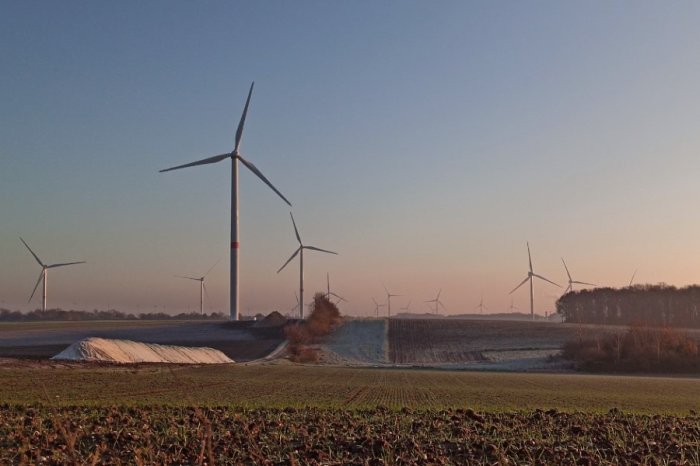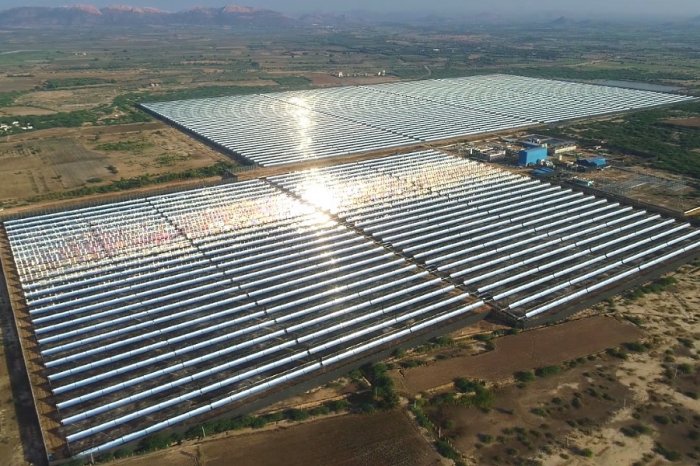After receiving the necessary documents (application form and project presentation), our team will try to review your request as soon as possible, and leading experts will offer the best options for project funding.
Engineering projects in these sectors support the activities of government agencies, private companies and the entire economy.
The demand for engineering services is growing.
The dynamic growth of developing economies requires more highly qualified specialists. Local educational systems cannot satisfy this need.
Advances in communications technology have made international engineering more affordable than ever.
Attracting foreign specialists allows many companies to increase their energy efficiency, labor productivity, competitiveness and the quality of their products.
Countries such as the United States, Britain, Germany, France and Spain are among the leading exporters of engineering services. Western companies carry out many high-tech projects in Africa, Asia, South America, Eastern Europe, Russia and the countries of the former USSR.
International engineering is playing an ever-increasing role throughout the world.
This form of scientific and technical cooperation sets as its main goal the improvement of the efficiency of foreign investments and the optimization of costs associated with the implementation of capital-intensive projects.
Engineering activity is a set of operations for the design, construction, reconstruction, modernization and ensuring the effective functioning of enterprises.
The concept of international engineering is based on a systematic approach, modern technologies and the rational use of material, technological, financial and labor resources, taking into account the characteristics of a particular project.
Advantages of a systematic approach to the implementation of investment projects:
• the possibility of using innovative production and construction technologies, equipment and materials from various sources;
• highly effective organization and project management, which allows to minimize losses and get the best result for the customer;
• clear coordination of actions of all project participants.
Attracting foreign companies is very important, despite the risks that inevitably accompany the implementation of engineering projects abroad.
International engineering
Exports of engineering services have been growing steadily over the past two decades.This is facilitated by the introduction of new information transfer technologies. Business strategies are also being updated with an emphasis on the use of outsourcing services.
Due to the uneven distribution of technical and labor resources, there is an increased demand for international engineering services. In developing countries, renewable energy and infrastructure projects are of particular interest.
These services are provided in various forms, depending on the needs of the customer:
• consulting services: designing new equipment and entire enterprises, general planning and control at all stages of the project;
• technological services: offering unique technologies for construction, operation and modernization of the enterpises;
• construction services: construction and installation of equipment, supervision at the construction site, as well as the supply of necessary materials and equipment.
There is a growing need for reengineering services that are aimed at modernizing and improving the competitiveness of an established business.
Reengineering services are an urgent need in an ever-changing environment, especially in the energy and infrastructure sectors.
The services of engineering firms are divided into two large groups.
They can be called intelligent engineering (including economic, consulting work) and technical engineering.
The first group includes all types of intellectual activity:
• various types of research;
• transfer of technology, knowledge, skills and experience;
• preparation and evaluation of tenders, negotiations with suppliers;
• organization and management of the project;
• training of customer personnel.
The so-called technical engineering includes the supply, installation and commissioning of complete equipment, individual machines and units, construction work and so on.

International engineering services include:
1. Conducting pre-design studies
In the initial phase, specialists study a specific market, conduct comprehensive socio-economic studies and plan investments. Based on the collected data, a feasibility study for the project is prepared and a final decision is made regarding its implementation.Success at this stage depends on the qualifications of the engineering company, since errors in geodetic surveys or, for example, incorrect assessment of the transport network, often lead to disastrous consequences.
2. A full range of design services
The next stage of work covers general and detailed engineering, including preliminary engineering studies, development of a master plan and related recommendations for the customer.At this stage, the preliminary cost of the investment project is estimated, and all costs associated with the construction and future operation of the energy or infrastructure facility are forecasted.
Detailed engineering includes the development of a complete set of necessary technical documentation, including the architectural design, working drawings of each element, and more. Advisory support at this stage actually determines the appearance of the future object, helping to make the necessary adjustments.
3. Contracting and construction work
An EPC contractor prepares the necessary contract documentation, organizes tenders and provides recommendations on commercial offers. Civil work and construction site supervision are entrusted to a single company.At the end of the construction of the facility, all necessary tests are carried out in accordance with the requirements of the customer and current standards. Based on the results of acceptance tests, the facility is commissioned with the issuance of the appropriate certificate.
In the future, an engineering firm can provide training services for technical personnel of the customer and other services taking into account the specifics of the project.
International engineering contracting
The introduction of innovative technological solutions, the transfer of knowledge, skills and experience for the proper operation and maintenance of complex facilities abroad require a long-term relationship between the contractor (engineering company) and the customer.These relationships are based on international contracts.
International engineering is executed in the form of a contract that establishes the technical, organizational and commercial conditions for the provision of engineering services.
Preparation of an engineering contract is based on customer needs.
For the customer, the key point at the initial stage is the choice of approach for establishing business contacts.
The search for partners, including equipment suppliers and construction contractors, requires priority attention.
Especially when it comes to the implementation of investment projects abroad. It is necessary to flexibly use direct negotiations or international competitive bidding to make the best decision.
Direct negotiations with contractors
Direct negotiations require prior planning and preparation.The effectiveness of direct negotiations depends on the following factors:
• adequate preparation of clients for negotiations, including the feasibility study with the main technical characteristics of the project, the terms of the contract proposed to the bidders and so on;
• coordination of interests of bidders on the mutual protection of intellectual property, that is, technical and commercial information will remain confidential;
• the correct formulation of the goals of the customer in the context of a specific project;
• selection of appropriate negotiation tactics in accordance with the specifics of the negotiated object, the real positions of the contractors, the balance of forces and interests of the participants;
• staffing the negotiation team with qualified specialists who will competently protect the interests of the customer.
International competitive bidding tenders
The client is not always free to choose a negotiation approach for various reasons, including due to legislative restrictions.It matters whether the tender will be open, closed, single-stage, two-stage, domestic, international, etc.
The choice of approach is determined by the specific working conditions and project requirements.
Most customers prefer bidding for a variety of reasons.
As a rule, energy and infrastructure projects mean a high degree of technical complexity, risks and uncertainties, long construction periods and high costs.
The tender procedure helps to choose the most competent and competitive contractor.
An international tender is the most suitable approach for effective control over the expenditure of financial resources allocated for the implementation of the project.
To minimize the risks associated with entering the international market, many companies prefer this approach.
An open tender is a relatively effective option to deal with corruption, embezzlement and other possible risks that accompany international business. Holding an international tender with the participation of reliable companies meets the interests of the customer.
The interests of the customer are protected by the system of guarantee deposits of bidders for fair participation and high-quality contract execution in case of winning.

It is also a very favorable opportunity to use the experience of highly qualified specialists in the preparation of tender documents.
As a result, the customer can maximize some benefits of fair competition between bidders.
On the other hand, there are some risks associated with choosing a tender as a way to establish business contacts and implement a project:
• high costs of preparing, organizing and conducting tenders;
• technical and organizational complexity of an international tender;
• risks associated with the specifics of the business.
The selection of a contractor requires careful analysis and evaluation of the proposals of each bidder. The options for formulating the final decision are diverse.
Financing international engineering projects
The search for sources of financing is one of the problems of international engineering projects, even for large companies.Ideally, financing of engineering projects abroad requires an attractive business idea, sound planning and positive opinions from leading industry experts.
Project financing can be carried out both through the use of own funds, and through attracted funds. This could be project finance, corporate finance, budgetary allocations or government loans.
The implementation of infrastructure and energy projects has a number of features.
Various mechanisms of public-private partnership are widely used here. Since projects of this kind bring significant benefits to the whole society, the host state often plays an important role in their implementation.
As a rule, energy and infrastructure projects are characterized by large scale, high capital intensity and long payback periods.
Thanks to the participation of the state together with private banks and other financial institutions, these projects attract financing on the most favorable conditions.
ESFC engineering and financial services worldwide: EPC contracts
While some companies commission the construction of subcontractors, others contain their own construction divisions.Large companies are involved in all phases of international engineering projects.
Services as an EPC contractor include:
• project management;
• conducting pre-investment research;
• detailed feasibility study;
• any types of design work;
• procurement of materials and equipment;
• construction work of any complexity;
• advisory support during the operation of facilities;
• maintenance and repair.
ESFC promotes innovation by providing financial and engineering services worldwide.
Our experts and partners help to build infrastructure, energy and industrial facilities in Spain, Finland, Poland, France, Egypt, Morocco, Chile, Bolivia, Saudi Arabia and other countries.
We cover the entire chain, including financing, conceptual design, feasibility study, engineering, procurement, equipment supply, construction, testing and commissioning, maintenance and modernization.
Our experience opens up endless possibilities for your business.




























